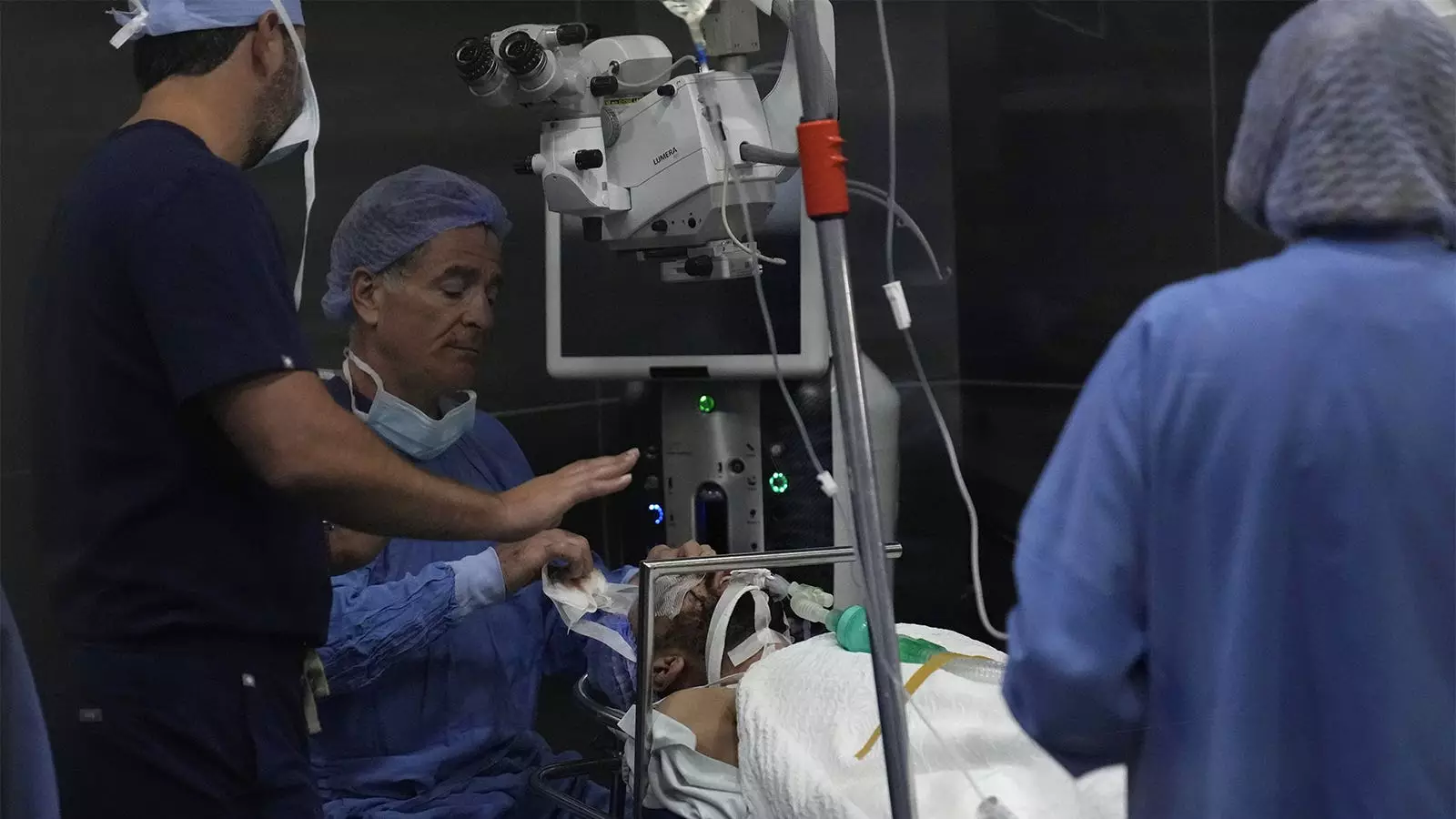In a relentless wave of tragedy, ophthalmologist Elias Jaradeh finds himself entrenched in a nightmare scenario that no medical professional should have to confront. For nearly a week, he has been tirelessly operating on a deluge of patients—a catastrophic situation fueled by the explosion of numerous handheld communication devices across Lebanon. While the main culprits behind these explosions are believed to be linked to Hezbollah, attributing blame in this convoluted political landscape provides little comfort to the sheer number of civilians impacted. With over 39 lives claimed and thousands injured, the unfolding disaster has overwhelmed medical facilities, transforming the standard operating procedures into a clinch of desperation.
The hospital, a sanctuary in times of illness, has become a war zone for Jaradeh and his colleagues. He now functions on a mere two hours of sleep, oscillating between the operating room and his responsibilities as a lawmaker. “Every time I step back into the OR, it feels like I’m stepping into a battlefield,” he shares, despondently reflecting on the devastation surrounding him. The pressures are immense; the patients flooding in were predominantly young—individuals whose lives will bear the scars of this traumatic event for years to come, if not permanently.
A haunting element of this tragedy lies not just in the widespread injuries but the specific devastation inflicted upon the eyes of many victims. As the devices exploded, they did so at a critical moment when people were engaging with them—an indication of both vulnerability and horror. The aftermath reveals a grim reality where vision, a vital sense, has been compromised by shrapnel and trauma. “We’ve never encountered anything like this,” remarked other seasoned ophthalmologists, who, having previously managed injuries from wars and conflicts, find themselves in a new and unchartered territory of medical crisis.
The doctor explained with palpable frustration how much of the trauma he’s witnessed stems from the sheer brutality of the circumstances. With some victims suffering from irreversible damage, his expertise has been put to an extreme test. “The level of destruction goes beyond anything I’ve known,” Jaradeh solemnly noted. As these individuals traverse the line between life and a distorted new reality, questions linger about the long-term implications of this crisis on mental health—a dimension often overshadowed by physical injuries.
This incident starkly illustrates how deeply intertwined healthcare and politics are in Lebanon. Amid endless cycles of violence, medical professionals like Jaradeh are left to navigate a myriad of responsibilities that extend beyond patient care. With the surge of casualties from the explosions, healthcare systems are less about treatment and more about crisis management. Each patient is not just a casualty; they represent a broader narrative of conflict and despair afflicting the nation.
Jaradeh himself, despite being trained to keep emotions at bay, finds it increasingly difficult to draw the line between the overarching humanitarian crisis and his role as a surgeon. “They taught us to compartmentalize, but how can one remain detached when their work directly confronts the wars waged on our people?” he lamented. It’s a feeling echoed by many in the region—those grappling with a juxtaposition of their vocation and the harsh realities dictated by geopolitical disputes.
As the dust settles and the world watches, it becomes imperative that we comprehend the intricate web of human suffering that evolves from such conflicts. Be it from intentional acts or collateral damage, the human cost remains staggering. The medical community in Lebanon exemplifies resilience amid chaos, but it also highlights the inadequacies of global support systems when humanitarian crises unfold.
As Jaradeh fights for his patients’ sight, he simultaneously battles to reclaim their hope. His work is not merely a professional obligation; it embodies a larger fight for humanity itself. In this critical moment, it is vital for global actors to recognize the devastating impact of their conflicts on ordinary lives, advocating for peace and healing where chaos reigns.

Leave a Reply